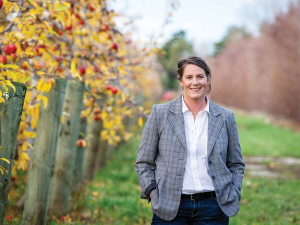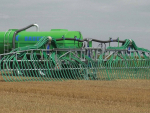With gloomy trade news almost daily, farmers are likely to revise their farm budgets downwards. Given pastoral agriculture spends around $13 billion on goods and services each year, this has implications for both the provincial and national economy.
"It's no secret while primary export volumes have increased, commodity prices are in retreat," says Bruce Wills, Federated Farmers President and economics and commerce spokesperson.
"The current export climate still has Europe in a bad way. America remains bad, though slightly less bad of late, but demand from key Asian economies has weakened and this includes China.
"The picture out of Australia isn't much rosier. Aside from Western Australia most state economies are either in or tiptoeing their way around recession.
"While some say we shouldn't have all of our blocks of butter in the dairy basket, whatever we export and wherever it goes, we face the same tough international environment. It applies equally to hi-tech and tourism as much as it does to wool.
"Compared to last year, I'm getting around $40 less for a heavy prime lamb. I now expect my farm income will be down 20 percent and I shudder to think what would have happened if we hadn't had a wet summer.
"The New Zealand dollar isn't doing exporters any favours either and I'm at a loss to explain why it hasn't fallen. Economic fundamentals should be driving it lower but despite the gloom, it was over US$0.81 when I last checked.
"Maybe it's because we're one of the 'least bad' economies in the OECD. Whatever the cause, we're hurting and that will be expressed by farmers keeping a close lid on what they spend.
"I know there'll be calls for currency intervention but frankly, that's trying to stop the incoming tide with your hands. We can't take on global markets, but need actions to support exporters.
"Councils must keep their rate and fee increases in check and this applies equally to the Government's spending plans ahead of Budget 2012. We're also keen on planned changes to the Public Finance Act to improve the fiscal discipline of the economy's biggest spender.
"Rather than the blunt use of the Official Cash Rate, we'd prefer the Reserve Bank to selectively take the heat out of sectors by using 'macroprudential tools'. Things like capital adequacy and liquidity policies could, for example, mandate a minimum deposit for home mortgages.
"The priority for farmers will be productive investment and tackling debt to take advantage of stable interest rates. Whatever happens, we expect farmers will recast their farm budgets to an extremely conservative basis," Wills concluded.



















